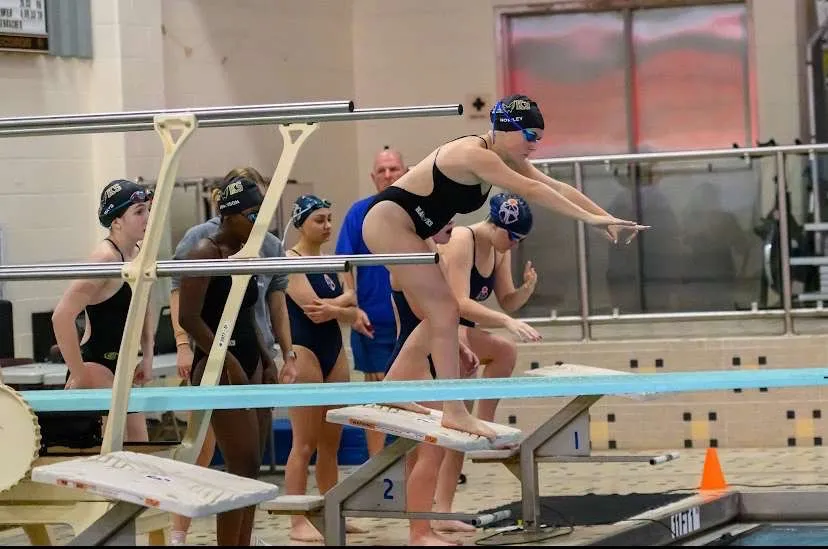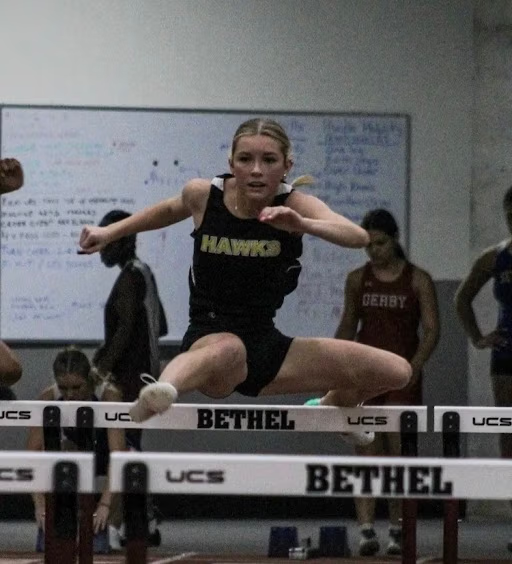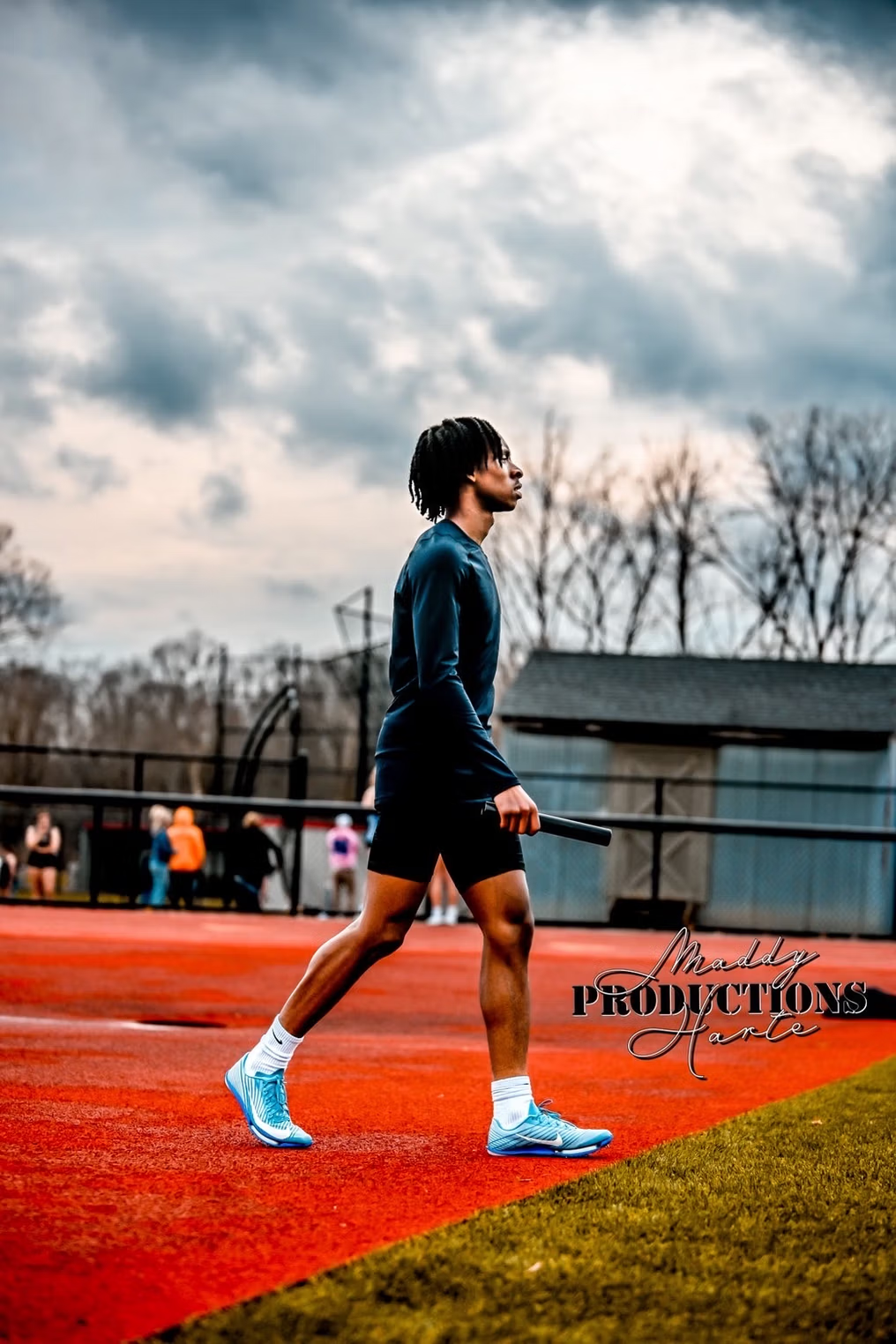
By: Sadie Bronn
For Captain Kallee Howley, the team is more than a sport; it’s a family. Having a close team is the top priority for her.
“We’re not just teammates, we’re also a family,” said Howley.
For Howley, swimming wasn’t her first sport; that was soccer. But in sixth grade, all that changed when she took a plunge in the Long River Middle School pool.
“My main sport at the time was soccer,” said Howley. “But once I started swimming, I obviously stuck with that.”
Even though she had little knowledge of the swim team, she knew it was a popular sport at Long River Middle School, and a lot of her friends were involved.
“My whole friend group did it, and that’s when I decided to try it out, just for fun,” said Howley. “I wasn’t planning it to be my main sport, but I ended up loving it and having a passion for it.”
Having a team that you can talk to about anything you want and not feel judged is paramount. Even during close meets when the girls are going through it, everyone is there to support each other and help them get through the rough moments. Howley and the other captains have a rule called the five-minute rule. The five-minute rule allows you five minutes to release your emotions. She enforces it the most to let the team know that it is OK to have emotions.
Howley’s most memorable experience in swimming helped her become the person to assist with emotions.
“I didn’t finish my first 100-yard butterfly because I felt the pressure of swimming it,” said Howley. “After I got out of the pool, the amount of support I had from my captains and coach, and even though I didn’t finish it and failed, they still helped me and showed me that I was still important.”
Having support and the words of affirmation really changed her perspective on the event and how the team includes everyone like a family.
Howley believes that this family not only strengthens the team bond but also elevates the team’s performance. Now Howley swims that event at almost every meet, and having that impact really influenced her to be a captain just like that.
“Having great captains before me motivated me to want to become a captain like that,” said Howley. “They helped me do better and helped me when I failed.”
Howley works to separate a swimmer’s identity from their performance, guaranteeing they feel the same deep, non-judgmental family support she received after her failure, which helped her grow and become the captain that she always wanted to be.






